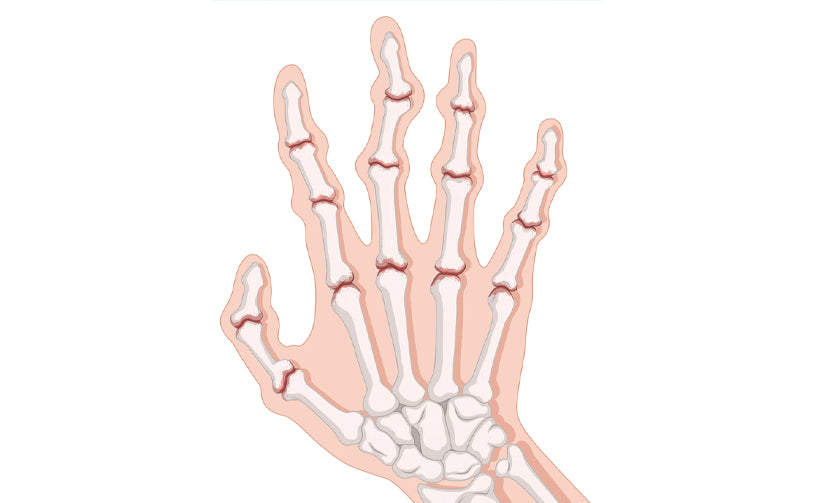Rheumatoid arthritis is an autoimmune disorder in which our immune system starts attacking our own body tissues, primarily the synovium (makes synovial fluid which helps in joint movement and flexibility) or outer lining of the joints. It may also affect other organs like blood vessels, cartilage, bone marrow, elastic tissues, skin, eyes, heart and lungs. Damage by this disease usually happens on both sides of the body. So, if your right leg is damanged it is very like that so will be your left.
In rheumatoid arthritis, lining of the joints gets swollen and inflamed, which may cause joint deformity, bone erosion and chronic inflammation which can damage other body parts as well. This disease can lead to physical disability since it may progress to other body parts such as knees, hips, ankles, elbow, shoulder and wrist. The effected joint may become painful, loose, less mobile and unstable.
Common sign and symptoms are: joint stiffness which is more severe in the morning, weight loss, fatigue, swollen, tender and warm joints, loss of joint function and sometimes fever. Rheumatoid arthritis may lead to further complications if not treated well or ignored, these are: osteoporosis, frequent common infections, carpel tunnel syndrome, hardened arteries, inflammation, lymphoma and lung diseases.
Do’s
- Be regular with exercise or yoga to keep your joints healthy. Consult an expert to formulate a specilised exercise plan.
- Apply a hot water bottle or heating pad to get relief
- Eat healthy like fresh fruits and vegetables, foods rich in omega-3 fatty acids, antioxidants and flavonoids
- Use natural pain-relieving supplements. Turmeric and ginger extracts in combination can be very helpful.
- Use natural oils to rub on the affected area
- Get enough rest
- Use assistive devices like canes or crutches
Don’ts
- Don’t lift heavy weights
- Quit smoking
- Don’t get over weight
- Do not live a sedentary life and stay active






